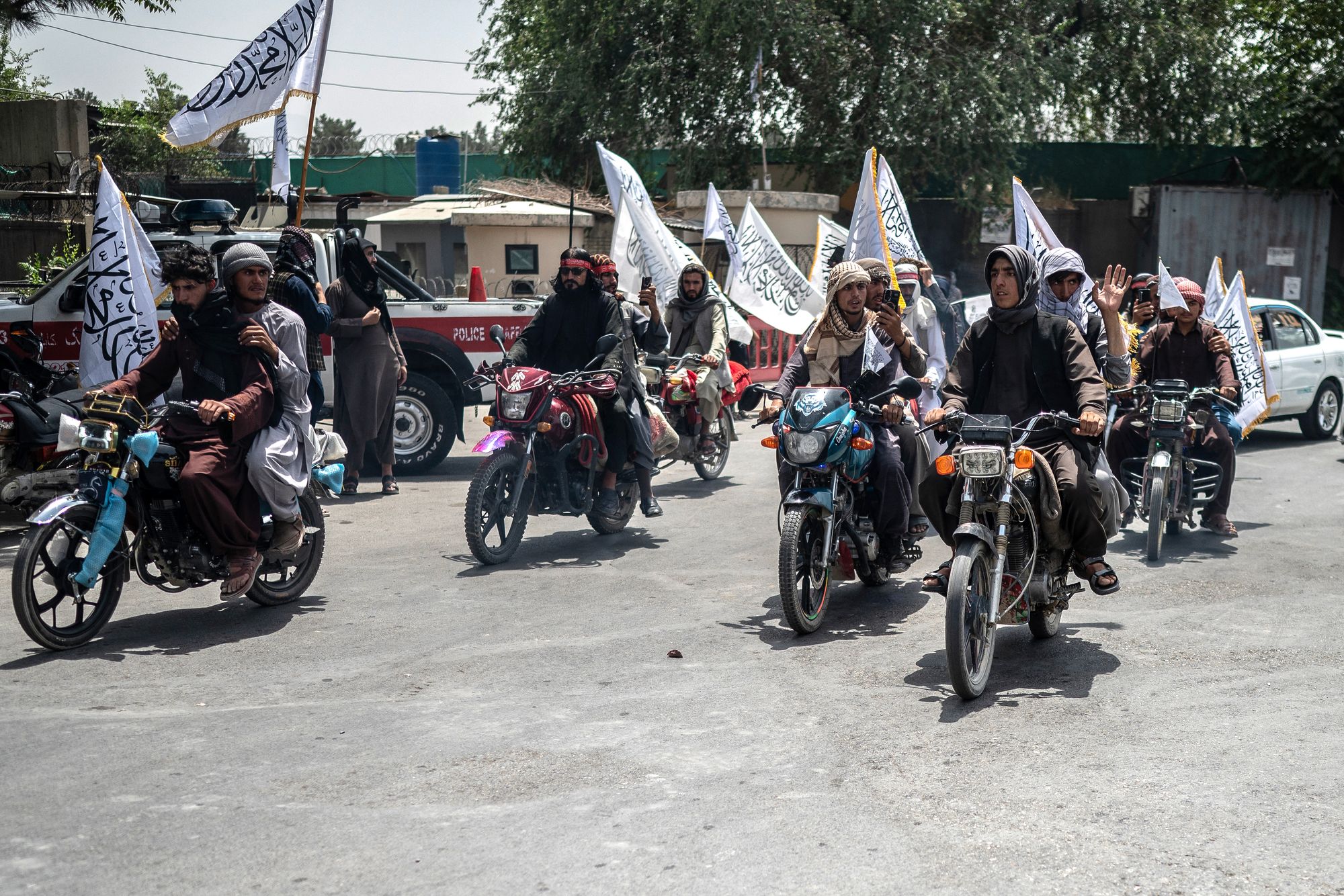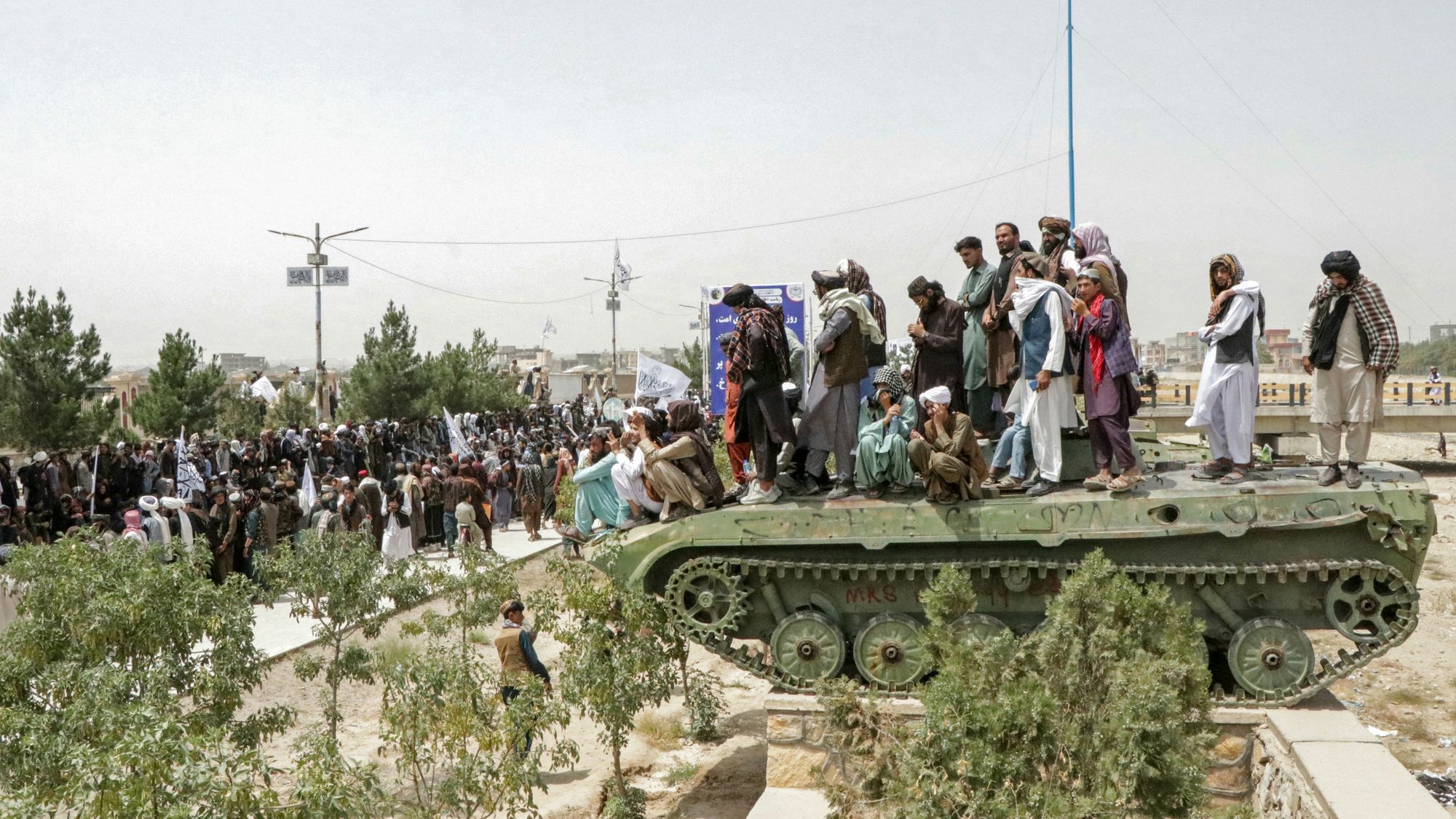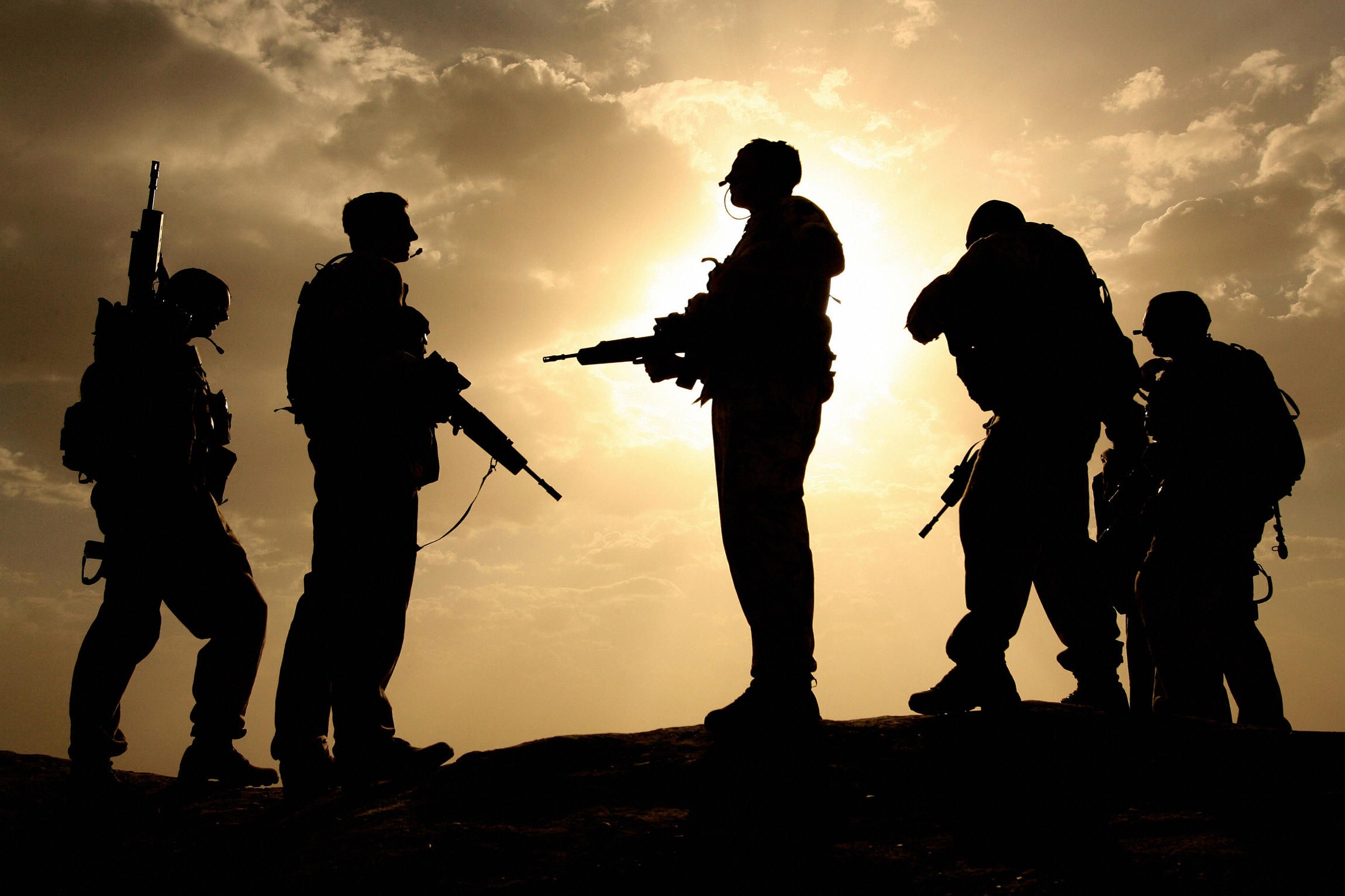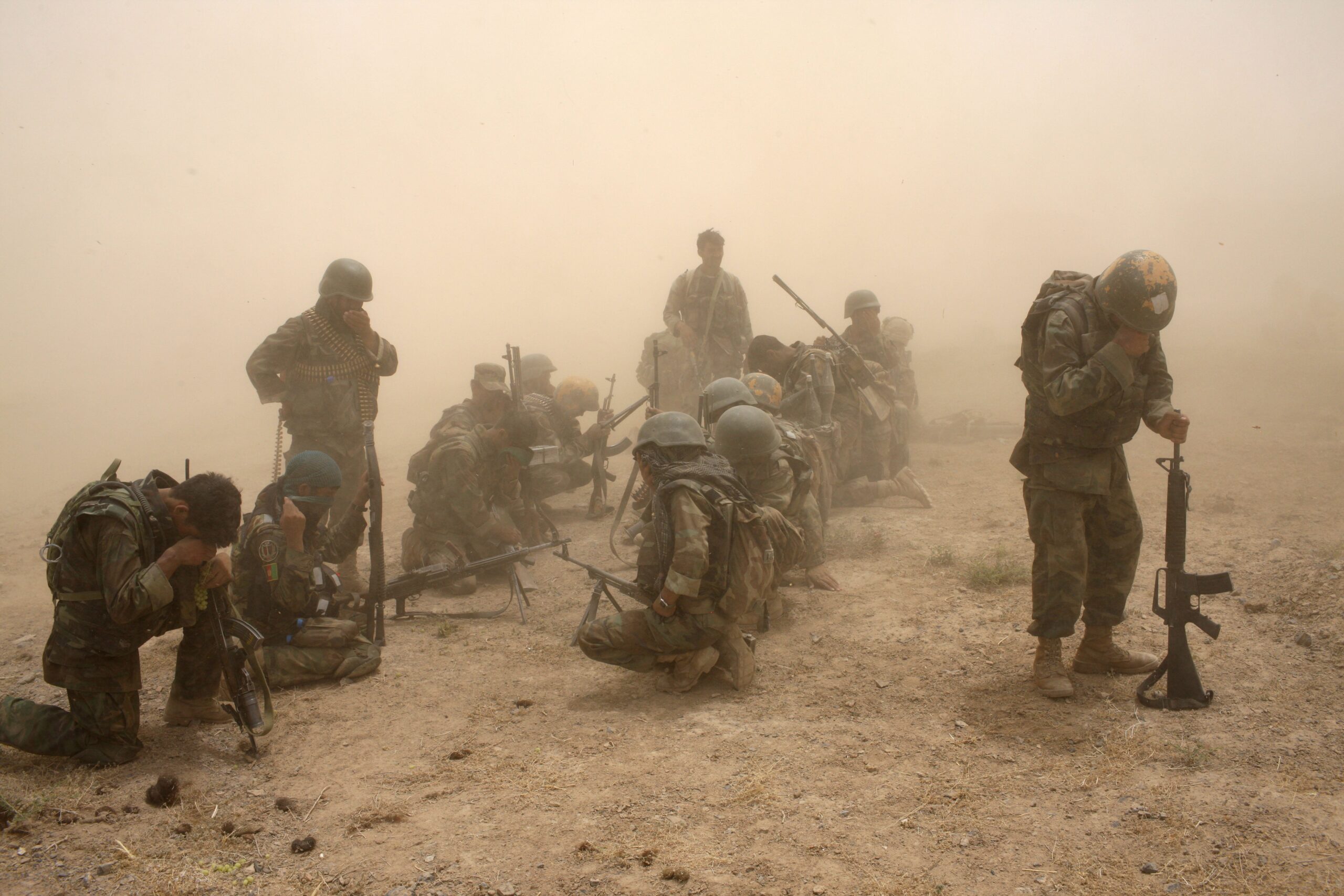Afghan security forces who fought alongside British and US troops are still being hunted down, tortured and executed by the Taliban while the UK drags its heels over bringing at-risk Afghans to safety, The Independent can reveal.
A shocking new investigation reveals more than 100 ex-Afghan forces have been killed in the country since 2023, with others tortured – laying bare the danger facing servicemen left behind by allied forces following the Taliban takeover in 2021.
The stark figures have renewed calls for the UK to deliver on its promise to help the thousands of eligible Afghans still waiting on sanctuary in Britain, with government delays over resettlement blamed for enabling the Taliban to “wreak revenge” over the past four years.
Among those killed is Ali Gul Haidari, a former member of the Afghan special forces who worked closely with US troops, who was gunned down in front of his wife and children in early 2024. He was targeted after being deported back to Afghanistan from a neighbouring third country, having fled there to seek sanctuary.
Others have been tortured at the hands of the Taliban and live in fear for their lives. Former commando Najmuddin served in one of two UK-funded special forces units, known as the Triples, and was approved for relocation to Britain six months ago. But, before he could flee to safety, he was detained yards from his front door and taken to prison, where he was so badly beaten that he had to be hospitalised. He was eventually released from Taliban custody after nearly a month and remains in Afghanistan.
The Taliban announced an amnesty for former government officials and former members of the Afghan security forces when they first took power, but this was followed by a wave of reprisal killings. By June 2023, the United Nations Mission in Afghanistan had documented more than 200 extrajudicial killings, usually involving people being detained by Taliban security forces before being killed.
In June this year, the Taliban prime minister repeated the pledge of an amnesty, assuring Afghans abroad they would not be harmed if they returned.
But a painstaking analysis by newsroom Lighthouse Reports, along with The Independent and Afghan media partners Hasht-e Subh (8am Media) and Etilaat Roz, has uncovered at least 110 killings of former Afghan national defence and security forces (ANDSF) from 2023 to mid-2025 – proving that the persecution continues.
Some killings were attributed to “unknown” gunmen or bodies found after mysterious disappearances. But other cases indicate former ANDSF have died during or following torture while in detention.
During the court case over the catastrophic Ministry of Defence data breach, which potentially put thousands of Afghans who helped UK forces at risk, a government barrister said it was a “fundamental fact” that reprisal attacks were not taking place on a scale that would indicate use of the data leak. But the Rimmer review, later commissioned by the MoD to explore the risk facing those affected by the leak, admitted the Taliban already had access to information they could use to track down and kill former security forces.
Despite understanding this danger, the government announced the closure of two resettlement schemes – open to those seeking sanctuary in Britain from Afghanistan – in July with no prior warning, prompting fears many would be left exposed.
As of October this year, there were an estimated 4,200 applicants and their family members who are eligible to come to the UK under the MoD’s flagship Arap resettlement scheme still awaiting relocation.
Lib Dem MP and chair of the APPG for Afghan women and girls, Wendy Chamberlain, said the findings were “absolutely horrendous” and called on ministers to revisit the decision to close the UK’s resettlement schemes to new applicants.
Major General Charlie Herbert, who worked alongside the Triples, described it as “reprehensible” that UK government delays in granting eligibility and visas “have enabled the Taliban to wreak revenge on them since 2021”. He added: “The relocation of those eligible Afghans who supported us between 2001 and 2021 has been a long story of poor policy decisions, failed promises and ineffective delivery by successive governments.”

A spokesperson for the MoD said the department was honouring their commitment to Afghans eligible to come to the UK under the safe routes. They added that the strict security and entry checks required before relocation took time, and the government had been clear that the resettlement routes could not be open indefinitely.
‘They didn’t have any mercy’
Former Afghan special forces soldier Najmuddin had waited four years for a decision on his application for relocation to the UK. Having endured years living in severe danger, he finally had his chance to get to safety – a visa to Pakistan organised by the MoD.
He had served for more than a decade alongside the very best in the UK and Afghan armies in an elite unit known as Commando Force 333 (CF333), one of two special forces units set up by the British known as ‘the Triples’. This summer, he was given approval to come to Britain under the MoD’s Arap resettlement scheme.
But just as he was making plans to leave Afghanistan, he was arrested by the Taliban. His family believe he was taken and tortured because of his previous work fighting alongside the British.
Describing the horrifying ordeal, a family member said: “They didn’t have any mercy on him. They beat him on his back, and other parts, and took out his nails. They were forcing him to accept that he was hiding guns but, as he wasn’t, he couldn’t accept that.
“Their goal was to take revenge on him for their sufferings during the republic. Many Taliban members had loved ones killed and arrested by the 333 unit during military operations back during the republic.”
The former Triples soldier was released from custody after mediation but remains severely unwell from the torture, his family said. Some of the details of his ordeal have been left out for safety reasons.

Hameedullah Nasiri, who was in CF333 for ten years, first as a soldier and then as an operations officer, and who moved to the UK in 2021, said he served alongside Najmuddin. He said he was shocked and saddened by the news that his former colleague was recently arrested and tortured. “He went on a lot of joint operations with the British. It’s so sad that despite being approved for Arap he is still in Afghanistan where he is in danger.”
Nasiri said he was in touch with around 14 other former colleagues who have been approved for relocation under Arap but are still awaiting relocation, and called on the UK to urgently speed up the evacuation process.
“It’s too slow. These guys already have confirmation, they just need to move. It makes me angry. If the UK can’t help them to get out, they should tell them this so they can try to get out of Afghanistan alone,” he said.
Gunned down in front of wife and children
For some former service personnel, even if they do manage to get to safety in a neighbouring country, they will live in fear of being one day deported back into the hands of the Taliban.
This was the case for Ali Gul Haidari, a former member of the Afghan special forces who worked closely with US troops. His commander, now in the US, described him as a “brave” soldier who conducted many operations alongside the Americans. A US special forces advisor who knew Haidari and served alongside his unit said they were “fully integrated in all our operations”.
Six months after the takeover, Haidari was arrested by the Taliban and tortured in custody, his wife said – an ordeal which prompted them to flee Afghanistan on his release. But, one year after reaching relative safety, he was arrested on the way home from his labourer job and deported.
Back in Afghanistan, Haidari lived a civilian life, according to his wife. But in early 2024, he was gunned down. His wife Hawa said he went outside to speak to a group of Taliban officers that had surrounded the house he was in, but said he was shot before he had the chance to say anything.

‘Taking revenge’
One former colonel in the Afghan national army, Naqibullah, has been waiting over a year on his UK relocation case to be reviewed. The takeover of Afghanistan cost him his son’s life when his family home was raided at the end of 2022 and Taliban members shot him dead, Naqibullah explained.
With his family’s help, he applied to the MoD’s Arap scheme in 2023 but was rejected for UK sanctuary despite two recommendation letters from Brits who served alongside him, which had been sourced by a trusted independent caseworker.
One of the letters, sent to the MoD’s Afghan resettlement team and seen by The Independent, said the Colonel “worked very closely with the UK government in Afghanistan”. He applied for his case to be reviewed in September last year but hasn’t heard anything since.
One of his son-in-laws, who is now in the UK after being brought to safety on the Afghan resettlement programme, said: “The Taliban are trying to take revenge against people who killed their family members. And they focus on those who worked for foreigners, Americans and Brits, because they want to fight against invasion and according to them, those who fought for the foreigners, are seen as a threat to them.”

‘Morally wrong’
Recent figures from the MoD show that Afghans who are rejected for relocation to the UK and request a review of the decision face an average wait of more than six months before their case is reassessed. For those asking for help to bring their family members to safety, these reviews take nearly 10 months on average.
The MoD is currently reassessing thousands of resettlement cases from members of Afghan specialist units, after an investigation by The Independent and Lighthouse Reports revealed errors in the way they were handled.
Daniel Carey, from law firm Deighton Pierce Glynn, who represents former Triples, said several clients have been detained and tortured while they wait for decisions from the MoD. He said: “Our Triples clients applied under Arap in 2021 and four years later many are still awaiting the first lawful decision. The UK government launched the ‘Triples review’ in February 2024 to reassess thousands of unsafe refusals, initially stating it would conclude within three months. However, 20 months later, the review remains ongoing”.
Ms Chamberlain said: “[These findings] confirm what we have long feared – that former members of the Afghan security forces continue to face targeted killings and brutal reprisals under Taliban rule.
“It also calls into serious question the intelligence and assumptions the UK government relied upon when closing the Arap and ACRS schemes to new applicants. The evidence is clear: those who stood alongside our forces remain at risk”.
Maj Gen Herbert added: “It was inevitable that the Taliban would never reconcile those who fought so hard and so successfully against them, not least members of the Afghan Special Police units, known as The Triples.
“It is particularly galling, and so morally wrong, that the government closed the schemes completely this year”.
Responding to the findings, which are being published jointly with The Independent and the Military Times in the US, Patricia Gossman from Human Rights Watch said: “The Taliban leadership promised a general amnesty, but this has proved meaningless for hundreds of former Afghan security forces affiliated with the former government who have fallen victim or been living in hiding since August 2021.
“Local Taliban commanders have summarily executed or forcibly disappeared at least several hundred former Afghan army, police, and intelligence personnel without consequence or any accountability – all of which indicates these killings are condoned or at least tolerated by senior Taliban authorities who are loathe to punish their own soldiers”.
An MoD spokesperson said: “We are honouring our commitment to eligible Afghans who have completed all relevant relocation checks. As the public would rightly expect, anyone coming to the UK must pass strict security and entry checks before being able to relocate – which can take significant time.
“The government has been clear that Afghan resettlement cannot be an indefinite process – Arap was in operation for over four years, with existing applications unaffected by the closure.”
The reporting team only included cases the Afghan partners had reported on and could be corroborated by an additional source, meaning many more have likely been targeted – with, no doubt, many more to come.
Some names have been changed for safety reasons.
